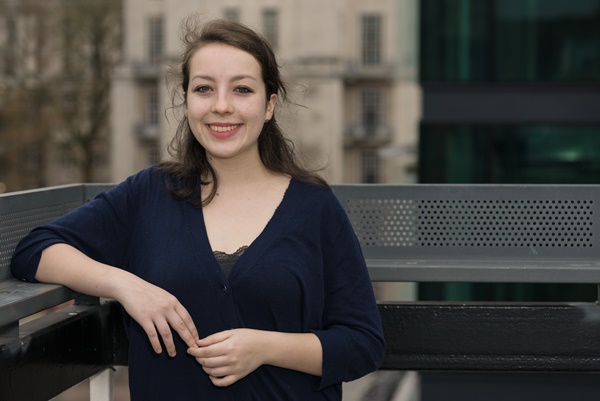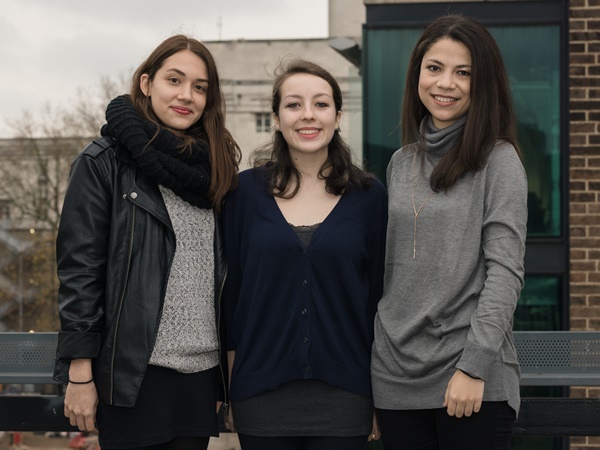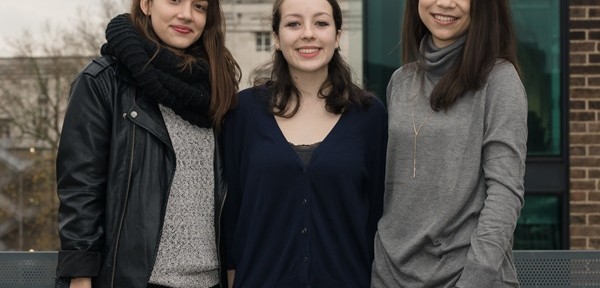This post was contributed by Andrew Youngson, media and communications officer
“Why are you the ideal candidate to receive the £5,000 Santander scholarship?”
This is the question posed to all Latin American students hoping to be selected for a special scholarship opportunity at Birkbeck. It’s a straightforward question, but one that needs a certain amount of objectivity and a keen insight into your skills and plans for the future to answer effectively.
Each year – providing they have an unconditional offer from the college – applicants are invited to answer the question in an essay of no more than 500 words. If successful, they receive £5000 to be applied towards their course tuition fees at Birkbeck – a significant sum of money that is provided by the college’s longstanding corporate partners, Santander.
Lauren Prone, Head of International Marketing and Recruitment at Birkbeck said: “We are very grateful for Santander’s donation, which has allowed Birkbeck to support the studies of promising scholars from across Latin America.
“This has proved highly attractive opportunity for students to pursue their passions, and in the past two years since launching the scholarship, it has been granted to students pursuing a range of courses, including the Arts, Social Sciences and Business Studies.”
Michael Wilson, University Regional Manager-London and East for Santander Universities UK, said: “We signed our agreement with Birkbeck in 2013 and we are delighted to see how the students have benefitted from this agreement.
“Talented young people have been able to study in the UK thanks to our funding and UK students have been able to have study abroad experiences. We are extremely pleased with the university’s approach to internationalisation and the transfer of knowledge between universities and we are proud to be part of this long-term partnership.”
So, who are the latest lucky recipients of the Santander scholarship? We caught up with the three successful applicants from the 2015-16 intake, to find out how they are getting on in their studies.

Camila Villegas
- MA Arts Policy and Management
- From Bogota, Colombia
How are you finding Birkbeck’s learning environment?
“My teachers here have been really supportive, and have always been available to help me. It has been a major shift for me educationally, because British education is very theoretical and I hadn’t experienced that much before. So it’s been challenging. For example, I didn’t do a dissertation at my last university; it was just projects and portfolios. I had never done research before, and it’s been a while since I have done essays, so it’s been a challenge, but I feel there’s a lot of support here.”
Read Camila’s full interview here and watch her video interview in English here and below, and in Spanish here.

Fernanda Costa
- BA History and Archaeology
- From Curitiba, Brazil
How are you finding the Birkbeck experience?
“I’m really enjoying my lectures. At first I wasn’t keen on the seminars because I don’t like speaking up, but now I enjoy the discussions. I’m talking much more in class than I used to. At first I didn’t think I was clever enough but I feel like I understand the readings a lot better now so that has helped my confidence.”
What is the makeup of your classes?
“There’s a real mix. There are people of all sorts of ages – from my age, some are a bit younger, and some who are much older which is really nice because they have so much more life experience. I find that listening to what other people have to say is really mind-opening because hearing different points of view helps you rethink your own.”
Read Fernanda’s full interview here and watch her video interview in English here, and in Portuguese here and below.

Diana Navia
- MSc International Management
- From Bogota, Colombia
How did it feel to be selected for the Santander scholarship?
“I was very happy, very very happy. I think you feel it’s like you are pursuing your dreams, you’ve found the right path and finally you’re going to achieve your goals. I was so happy to hear I got it, I think I must have called everyone to tell them!”
Read Diana’s full interview here and watch her video interview in Spanish here and below.
Applications for the 2016-17 cohort of Santander scholarships are now open, and must be made before 1 June 2016. Scholarship recipients will be chosen based on academic promise, the essay, the personal statement submitted with the course application, and need. The £5,000 scholarship will be applied towards course tuition fees.

The Santander Scholars (left to right): Camila Villegas, Fernanda Costa and Diana Navia
Find out more


